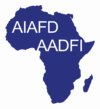Source: UDB

Uganda Development Bank Ltd (UDB) has through its Enterprise Development Program (EDP), trained a new cohort of close to 100 Small and Medium Enterprises (SMEs) equipping them with the skills and knowledge to become investor-ready.
At least 90 entrepreneurs attended graduation ceremonies organized by UDB in Arua and Gulu cities in the northern part of Uganda, after completing an incubation program. The program provides practical training and advisory services through a hybrid model involving UDB and Makerere University’s Business School Entrepreneurship Innovation & Incubation Centre (MUBS-EIIC).
Participants completed a two-month training course under the Bank’s Enterprise Advisory Services (BASE), receiving certificates upon completion. The Enterprise Development Program (EDP) aims to equip and nurture selected private enterprises through targeted training, mentorship, and incubation—enhancing their capacity and preparedness to access financing from UDB and other financial institutions.
This brings the total of SMEs that have completed this program to 150, following the graduation in August 2024 of the inaugural cohort in Uganda’s capital, Kampala. Similar regional training sessions will be conducted in other cities of Lira, Mbale, Mbarara, Fort Portal, and Masaka.
“This program is one of the Bank’s flagship non-financial interventions, designed to empower SMEs with practical, hands-on training. It aims to equip entrepreneurs with the knowledge and tools needed to start, strengthen and scale their businesses, while strategically positioning them to access UDB’s tailored financial solutions and to thrive in today’s competitive market. Our deliberate focus on the SME sector stems from the recognition that it is the engine driving growth in our economy,” said Andama Mahamoud, Director of Investments at Uganda Development Bank, during the graduation ceremony in Arua.
The Enterprise Development Program covers essential business fundamentals such as governance, bookkeeping, financial and risk management, strategic planning, debt handling, human resource management, and market development. The latest cohort included over 90 SMEs in primary agriculture, manufacturing, agro-processing, education, health, tourism and ICT.
Speaking at the graduation ceremony, Ann Hope Anguyo, the managing director, Vendor Capital Finance in Arua city, challenged the entrepreneurs to exploit the opportunities that exist in West Nile which currently hosts more than 2 million refugees.
“There’s a lot of opportunity in this region, being that it borders with two countries (South Sudan and DRC), but are we benefiting from these opportunities? Yumbe hosts one of the largest refugee camps in the world. And that has come with so much opportunity for the host communities. But how many of us in this room have benefited from the presence of this refugee population?” Anguyo challenged the graduates.

L-R: Vendor Capital Finance managing director, Ann Hope Anguyo (L) and UDB’s Director Risk, Sylver Kyeyune (R) pose with some of the EDP graduates in the Arua cohort
A teacher by profession who worked as a banker before branching off into entrepreneurship, Anguyo tipped participants to put ‘the problem’ before any business they seek to venture in.
“Before I start a business, I always ask myself, ‘What problem am I solving?’ Is it hunger? Is it disease? People are looking for solutions. Let our innovation be a problem solver, whether it is a small problem or a big problem,” said the farmer and CEO of Le Tsuba Grand Hotel. She stressed the importance of being consistent, setting realistic targets, taking feedback in good faith and learning from those that have done it before.
Micro, Small, and Medium Enterprises (MSMEs) make up 90% of Uganda’s private sector, serving as the backbone of the economy, according to figures by the Ministry of Trade, Industry, and Cooperatives. These businesses employ over 3 million Ugandans, generate more than 80% of the manufactured output, and contribute about 75% to the Gross Domestic Product (GDP).
However, entrepreneurs running small businesses face numerous challenges that impede their growth and success. Key barriers include limited access to finance, inadequate technical and business skills, and a complex regulatory environment.
In response to these challenges, UDB in December 2021 established the Special Program segment targeting SMEs, youth, and women enterprises. Special Program aids the implementation and management of interventions and innovations targeting eligible businesses, from startups to existing enterprises, with appropriate financial and non-financial solutions. The interventions under this segment play a crucial role in promoting inclusive growth and development.
Over the last three years, the Bank has approved over 300 projects under special program. With this innovative solution, the Bank continues to generate significant socio-economic development impact to improve the livelihoods of Ugandans. Specifically, the special program intervention generated and maintained over 2,000 jobs as of December 2024. Additionally, the supported projects under this segment generated output value of UGX 1,215 billion, tax revenue contribution worth UGX 64.73 billion and US$ 59.4 million in foreign exchange earnings.
